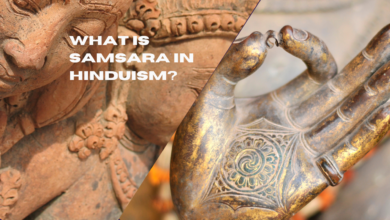Can Women Go to Graveyard in Islam?
Navigating the Graveyard Visit Dilemma: Women's Perspective in Islam

Can Women Go to Graveyard in Islam?
The permissibility of women visiting the graveyard in Islam is a subject of debate among scholars. Some consider it permissible with certain conditions, while others suggest it is better for women not to visit.

Introduction
The question of whether women can go to the graveyard in Islam is a topic that has generated significant discussion and debate among scholars and within the Muslim community. Like many aspects of Islamic practice, the answer to this question can vary depending on one’s interpretation of Islamic teachings and cultural traditions. In this article, we will explore the different perspectives on this issue and shed light on the underlying principles in Islam regarding women’s visits to the graveyard.
Islamic Perspective on Graveyard Visits
In Islam, visiting the graveyard is considered a recommended practice, and it is known as “Ziyarat al-Qubur” in Arabic. The primary purpose of visiting the graveyard is to remind oneself of death, reflect on the transient nature of this worldly life, and offer prayers for the deceased. This practice is intended to cultivate humility, gratitude, and a sense of accountability in the hearts of the living.
While there is a consensus in Islamic jurisprudence that visiting the graveyard is a commendable act, the question of whether women can visit the graveyard has sparked varying opinions. To understand these differences, we must consider the factors that influence these views.
Also check.
- Andrew Tate Islam
- Who is the Wessiah in Islam?
- What is Wudu in Islam?
- What is Jihad in Islam?
- What are the Holy Books of Islam?
- Why Taking Bribe is Haram in Islam?
Differing Opinions
- Permissibility with Conditions: Some scholars argue that women can visit the graveyard, but they emphasize certain conditions to maintain Islamic modesty and decorum. These conditions often include dressing modestly, avoiding loud lamentation or wailing, and conducting oneself with respect and humility.
- Prohibition: Another perspective holds that women should not visit the graveyard altogether. This view is based on the belief that the emotions and grief associated with grave visits may lead to immodesty or emotional outbursts that are not appropriate in a sacred space. Some scholars who hold this view suggest that women can make supplications and prayers for the deceased from their homes instead.
- Recommended but Not Obligatory: A third viewpoint takes a middle ground, stating that while it is not obligatory for women to visit the graveyard, it is still a commendable practice if done with the appropriate decorum and intention. This position allows women the flexibility to decide for themselves whether they feel comfortable visiting the graveyard or not.
Principles and Considerations
When addressing the question of whether women can go to the graveyard in Islam, it is important to consider the following principles and considerations:
- Modesty and Decorum: Islamic teachings emphasize modesty and decorum in all aspects of life, including visits to the graveyard. Whether a woman chooses to visit the graveyard or not, it is essential that she adheres to these principles.
- Cultural Variation: Cultural practices and norms can vary significantly among Muslim communities. What may be considered acceptable in one cultural context might be seen differently in another. Understanding and respecting these variations is crucial.
- Personal Choice: Ultimately, the decision of whether a woman visits the graveyard should be a matter of personal choice, provided it is done in accordance with Islamic principles. It should not be imposed on or forbidden to women against their will.
Conclusion
The question of whether women can go to the graveyard in Islam is not a straightforward one, and it has been the subject of differing opinions among scholars. While some argue for permissibility with conditions, others suggest prohibition, and a third group considers it a commendable but not obligatory practice.
Ultimately, the key principles to uphold in any visit to the graveyard are modesty, decorum, and a respectful attitude. Cultural variations and personal choice should also be taken into account. It is essential for individuals to seek guidance from knowledgeable scholars and make informed decisions in accordance with their own beliefs and circumstances.

FAQs
Is it permissible for women to visit the graveyard in Islam?
The permissibility of women visiting the graveyard in Islam is a subject of debate among scholars. Some consider it permissible with certain conditions, while others suggest it is better for women not to visit.
What are the conditions for women visiting the graveyard in Islam?
Conditions may include dressing modestly, refraining from loud lamentation, and maintaining humility and decorum during the visit.
Why do some scholars discourage women from visiting graveyards?
Some scholars believe that the emotions and grief associated with grave visits may lead to immodesty or emotional outbursts, which are not considered appropriate in a sacred space.
Can women make supplications and prayers for the deceased from their homes instead of visiting the graveyard?
Yes, some scholars suggest that women can make prayers and supplications for the deceased from their homes as an alternative to visiting the graveyard.
Is visiting the graveyard obligatory in Islam?
No, visiting the graveyard is not obligatory, but it is recommended and considered a virtuous act.
Can women decide for themselves whether to visit the graveyard or not?
Yes, the decision of whether a woman visits the graveyard should be a matter of personal choice, provided it is done in accordance with Islamic principles.
How should women navigate cultural variations regarding graveyard visits?
Women should be aware that cultural practices and norms can vary among Muslim communities. It’s important to understand and respect these variations while upholding Islamic principles of modesty and decorum.
What should women keep in mind when visiting the graveyard?
Women should remember to dress modestly, maintain a respectful attitude, and avoid any behavior that goes against Islamic principles during their visit to the graveyard.
Can women participate in funeral prayers or burial ceremonies?
In many Islamic traditions, women can participate in funeral prayers and burial ceremonies, although the level of participation may vary depending on cultural norms and local customs.
Where can women seek guidance on this issue?
Women can seek guidance from knowledgeable scholars, religious leaders, or local community members who can provide insights and advice on the specific practices and norms in their community.




